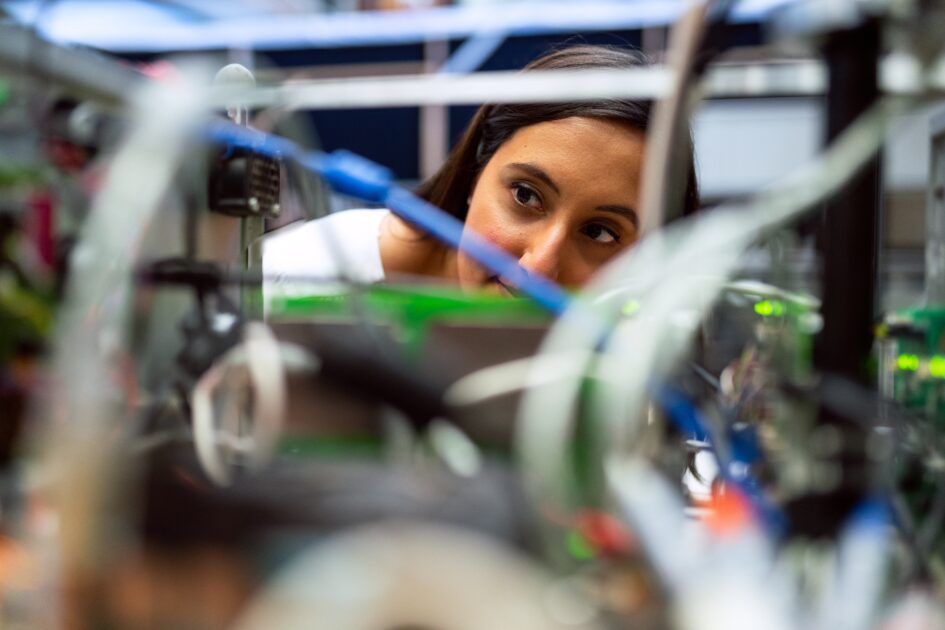Industrial automation has profoundly reshaped a diverse range of industries, ushering in a new era of efficiency and innovation. From B&R Automation to Rexroth, the broad spectrum of technologies and solutions encompassed in industrial automation and control systems have become indispensable in modern manufacturing and industrial processes. This article looks at the significance of these systems and introduces you to three major players in the industrial automation industry.
The Power of Industrial Automation
Industrial automation and control systems hold profound significance in modern manufacturing and industrial processes. By automating repetitive and labor-intensive tasks, they reduce production time and costs while maintaining consistent product quality—a critical factor in industries where even the slightest deviation from specifications can lead to significant issues and losses.
Moreover, the incorporation of feedback control mechanisms, such as sensors and encoders, ensures that processes remain highly precise, reducing variability and waste. The flexibility of these systems enables quick adaptation to changing production demands, enhancing a company’s agility in responding to market fluctuations.
By generating vast amounts of real-time data, industrial automation systems empower data-driven decision-making and predictive maintenance strategies. This ability to harness data is critical for industries looking to minimize downtime, reduce maintenance costs, and stay ahead in a competitive business landscape.
Beyond improving efficiency, automation also plays a pivotal role in enhancing workplace safety. It allows dangerous and physically demanding tasks to be delegated to robotic systems and automated equipment, ultimately mitigating risks to human workers while reducing the incidence of manual errors.
Therefore, the significance of industrial automation and control systems extends far beyond the factory floor, shaping the very foundation of modern industrial processes and delivering reduced labor expenses, enhanced production capacity, and improved product quality.
Shaping Diverse Industries
In the realm of manufacturing, automation has revolutionized production processes, streamlining assembly lines, reducing errors, and enhancing product consistency. This transformation extends to the automotive sector, where industrial robots and automation systems work in tandem with human operators to ensure precision and speed.
Automation has greatly enhanced accessibility and efficiency in healthcare. Robotic surgery systems assist surgeons in performing precise, minimally invasive procedures, while automated pharmacy dispensing systems improve medication accuracy and patient safety.
In the pharmaceutical industry, automation has led to significant improvements in drug manufacturing by enhancing product quality and consistency. Automated systems now oversee critical tasks such as pill packaging, labeling, and quality assurance, minimizing the potential for human error and bolstering pharmaceutical safety.
Additionally, the food and beverage sector has embraced automation to improve production efficiency and food safety. Automated systems handle tasks like sorting, packaging, and labeling, reducing contamination risks and meeting the demands of an ever-expanding consumer market. The integration of robotics ensures compliance with rigorous safety standards while enhancing manufacturing efficiency.
Logistics and warehousing processes have been equally expedited with the introduction of automated guided vehicles (AGVs) and robotic systems that efficiently manage the movement and storage of goods, streamlining distribution processes and reducing labor costs.
In the energy sector, automation optimizes the production and distribution of electricity, oil, and gas resources by monitoring and controlling energy infrastructure, ensuring reliability and safety. These industries have enhanced safety and efficiency by employing autonomous vehicles and robotic equipment in hazardous environments.
Three Notable Industrial Automation Brands
In a field where precision and reliability are paramount, proven brands in industrial automation instill trust and assurance, making them indispensable partners for businesses seeking to optimize their operations.
B&R Automation, also known as Bernecker & Rainer Industrie-Elektronik GmbH, is a prominent player in the field of industrial automation and control systems. Founded in 1979 in Austria, B&R offers a comprehensive range of products and services, such as programmable logic controllers (PLCs), industrial PCs, motion control systems, robotics, and industrial software. They are known for their commitment to Industry 4.0 and the Industrial Internet of Things (IIoT), offering solutions such as 8LS synchronous motors that enable real-time data analysis and optimization of industrial processes.
Bosch Rexroth Indramat, formerly known as Indramat, is a respected name in the world of industrial automation and motion control. Acquired by Bosch Rexroth in the late 20th century, this company has a rich history of producing high-quality drive and control systems. Bosch Rexroth Indramat specializes in innovative solutions for motion control, industrial hydraulics, and electric drives. They are known for their cutting-edge technologies, such as the IndraDrive platform, which offers advanced drive and control functionalities to improve efficiency and precision in various industries.
Kollmorgen is a well-respected company in the field of motion control and automation technology. With a history dating back over a century, Kollmorgen has a legacy of providing innovative solutions for precision motion systems across various industries. They are known for their expertise in designing and manufacturing servo motors, drives, motion controllers, and automation software. Kollmorgen’s solutions are widely used in applications that demand high levels of accuracy, speed, and reliability, such as robotics, aerospace, medical devices, and manufacturing automation.
From automotive manufacturing to pharmaceutical production, industrial automation has become a cornerstone of success. It enables businesses to streamline operations, reduce costs, and maintain high levels of product quality. As technology continues to advance, industrial automation and control systems will play a pivotal role in shaping the future of industries worldwide, benefitting both businesses and consumers.
